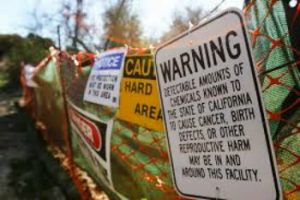The onset of global warming and climate change has made the majority of the population more aware of the state of the environment nowadays. It has triggered the public to contribute more when it comes to environmental conservation efforts in an attempt to salvage what’s left of the planet. While many participate in such activities, more actually do not and even contribute to the rise in carbon footprint especially in progressive first-world countries that are highly dependent on technologies fuelled by fossil fuel.
 It is depressing to think that there are government institutions in the world that do not support the fight to save the planet from its ultimate doom now that climate change is already our reality. Most countries set a budget for its environmental/ecological efforts but it is not always that big as compared to other services provided by the government like healthcare, education, infrastructure, etc. Without enough money, ecologists and environmentalists will have a hard time enforcing projects and initiatives they have laid out to protect the environment. Hunters, poachers, loggers, and miners will be able to do their deeds freely because there won’t be enough manpower to keep them at bay.
It is depressing to think that there are government institutions in the world that do not support the fight to save the planet from its ultimate doom now that climate change is already our reality. Most countries set a budget for its environmental/ecological efforts but it is not always that big as compared to other services provided by the government like healthcare, education, infrastructure, etc. Without enough money, ecologists and environmentalists will have a hard time enforcing projects and initiatives they have laid out to protect the environment. Hunters, poachers, loggers, and miners will be able to do their deeds freely because there won’t be enough manpower to keep them at bay.
Every year since 1990, ecologist Glenda Wardle of the University of Sydney has ventured to the same expanse of desert in central Australia to take stock of its flora and fauna. But this year may be the last time Wardle can collect data from the 8,000-square-kilometre site in the Simpson Desert. The consortium that operates her research area and 11 other long-term sites, comprising more than 1,100 individual field plots, will stop funding this network by the end of the year because of budget cuts and shifting priorities, say its leaders.
Without this money, which covers a large portion of the operating costs at these sites, 6 of the 12 will probably close, says ecologist David Lindenmayer, who is the science director of the network and is based at the Australian National University in Canberra. This would break time-series data that scientists have collected over decades, he says.
We are all probably thinking that all first-world nations got their act together but we are greatly mistaken as Australia appears to have reduced its funding dedicated to saving the environment. You are probably asking why considering that Australia in itself is a continent and a big part of its land mass are final frontiers of nature not to mention it has the Great Barrier Reef that is highly at risk as well today. It’s actually the same thing happening in the United States especially since President Trump assumed office early this year and he does not think highly about the environmental issues we are now facing.
The Jersey Shore needs every single dollar of funding from the federal Environmental Protection Agency, and cuts proposed by the Trump administration have the potential of undoing years of environmental protections in the state, according to Congressman Frank Pallone (D-6th).
Pallone joined state and local elected officials, Barnegat Bay environmentalists and members of the public for a press conference at the Mantoloking Bridge County Park on Thursday morning to demand protection for EPA funding.
In September, the House of Representatives will vote on a budget that would cut seven percent, or $.5 billion from the EPA, which would “devastate the agency,” Pallone said.
(Via: https://jerseyshoreonline.com/ocean-county/politicians-environmentalists-rally-epa-cuts/)
Considering the extent of the damage today, you can’t just easily reverse climate change in a few years or so especially that not everyone cooperates and our demand for energy and other non-renewable resources continues to rise as the population balloons. First-world nations actually produce the highest carbon footprint on land because of the various industrial, manufacturing, commercial, and other related industries yet they are still battling issues regarding environmental funding. The United States is in a much bigger mess with a president that entirely believes climate change is just a hoax and even managed to sign the country out of the Paris Agreement.
While it is true that we need everyone’s active participation to save the planet, it does not mean that you can’t do your part in your own little ways. Carpooling or using public transportation, recycling, reusing, and reducing your garbage, using eco-friendly materials, reducing energy consumption, etc. are just some of the things you can do by yourself on a daily basis. It may not have that big of an impact but over time you’ll realize how much you were able to contribute to saving the environment and eventually the planet.
